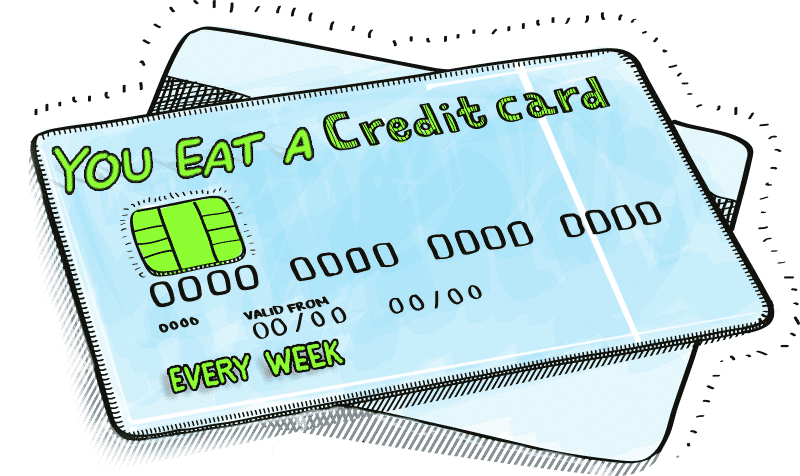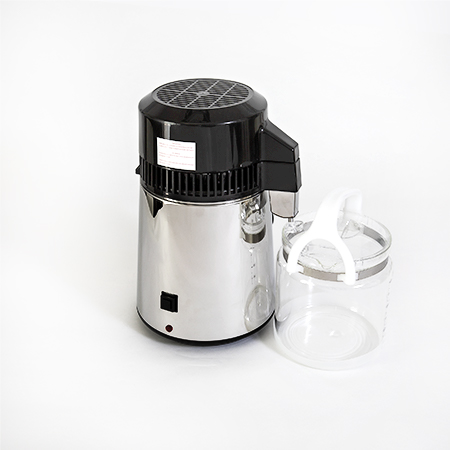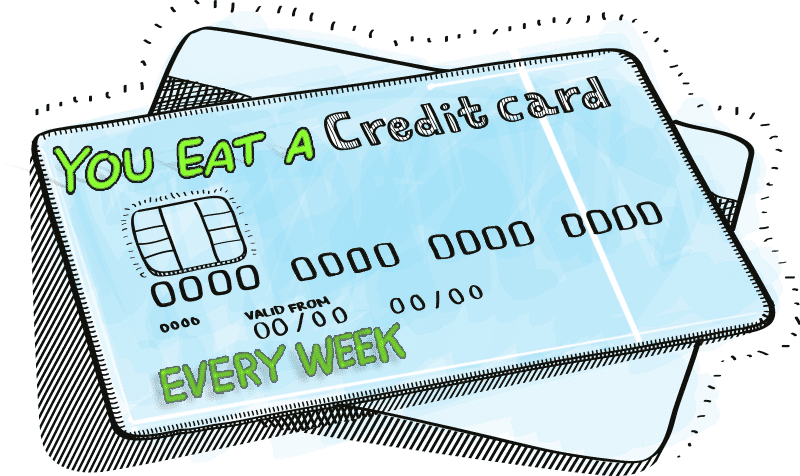To answer this question we will look at the health benefits, the financial benefits, and the environmental benefits of drinking distilled water. So if like me you’re asking ‘Should I drink distilled water?’, hopefully by the end of this article you will know the answer.

Health benefits and microplastics pollution
You’ve probably seen elsewhere on Imber Water Distillers that one of the key reasons Fede got into distilling his water, is because of the incredible benefits that we believe can be achieved for your body if you start to drink distilled water over tap water.
Yes there are some ‘good’ minerals in tap water, but these can be consumed through eating a balanced diet. Depending on where you live, there may also be many pollutants in your water, massively outweighing any benefits, and these create additional strain on your body which is already working hard to remove other toxins that we have consumed in a normal day.
A test by Orb Media found how 80% of the tap water tested was contaminated with Microplastics (tiny plastic fiber and fragments)
Microscopic plastic fibers are flowing out of taps from New York to New Delhi, according to exclusive research by Orb and a researcher at the University of Minnesota School of Public Health. From the halls of the U.S. Capitol to the shores of Lake Victoria in Uganda, women, children, men, and babies are consuming plastic with every glass of water.
Why should I care? I hear you ask… Well, If plastic fibers are in your water, experts say they’re surely in your food as well — baby formula, pasta, soups, and sauces, whether from the kitchen or the grocery. Plastic fibers may leaven your pizza crust, and a forthcoming study says it’s likely in the craft beer you’ll drink to chase the pepperoni down (that’s vegan pepperoni for me).
Another study commissioned by the WWF found out the average person is eating the equivalent of 5 grams of plastic per week! That’s like eating a credit card per week (and won’t even improve your credit score)!
So what are the biggest sources of plastic contamination?
It turns out there are 6 main sources of plastic contamination, here they are in all their majesty:
- Synthetic fibers in the wash
- Paints
- Secondary microplastics
- Synthetic fibers in the air
- Microbeads
- And last but not least, take a deep breath… It’s TYRE DUST!
All right, maybe I have painted too nasty a picture here, it just got out of hand I know. I’m sorry, I just get carried away sometimes. The bottom line is, nobody wants to drink plastic do they?
So get a water distiller for you home, it won’t stop you from breathing in the tyre dust but at least you won’t be drinking it.
Credits:
-ORB Media (thank you Orb Media. Seriously these guys are doing the work, please go and get informed on their website)
–The Guardian also covered this study in depth in this article.
Home water distillers
Meet your new best friend Isla.
Isla will purify your tap water to a 99.9% degree, making it the safest water to drink for you and family.
- No expensive filters
- No replacement cartridges
- No installation required difficult installations
- No maintenance
- Can be used anywhere in your home that is close enough to a plug.
Imber Isla will distil 4 litres of water in just 3.5 hours making it the fastest home water distiller.
Financial benefits of distilling water
If you are already an advocate for being selective over your water consumption – but currently spend out on bottled water, expensive filtration options – then a distiller could save you big money over the longer term.
Do you drink bottled water?
A curious study by Tapp Water found out that in England:
- 66% of people drink water directly from the tap
- 34% use a filter of some kind
- 15% mainly drink bottled water.
So according to this there is a 15% chance you mainly drink bottled water. If this is the case, think about it, how much do you spend on bottled water? Let’s say 80 pence per litre?
Great. Drink a litre a day and your spending £292 per year on bottled water.
Of course you know bottled water is more expensive than tap water, but do you realise that bottled water retails at least 500 times the price of tap water? That’s huge.
The question arises: Is it also 500 times better for you?
Just think how long those plastic bottles of water have had to stand in line before getting picked up by you.
After being bottled they get stored somewhere, then they get shipped to some other part of the country or if you’re Evian or Fuji water you even get to take a trip abroad.
Then they get stored some more, then they finally reach a store where they get stored some more, finally they reach the big stage, where hopefully they’ll get picked over a Fanta or a Dr.Pepper (I’m still impressed some people pay for such a drink).
Long story short a bottle of water maybe a year old, or even two years old by the time you drink it.
We already talked about Microplastics in the previous mini chapter and how they seep into our environment. Plastic bottles of water are made with Bisphenol A, otherwise known as BPA (BPA is the villain of the story here, sorry BPA). BPA causes cancer in rats, so do not give it to your little pet mouse, not a good idea. But stay away from it yourself, too!
A study found BPA in urine of 95% of Canadians. Am I calling them rats? Noo! Just, you’ve got to read this study please, and give up the bottled water for bisphenol’s sake!
Home water distillers are a great way of staying clear of BPA and chlorine, whilst saving money. When compared to bottled water or expensive water filter cartridges, a distilled litre of water costs around 8 pence – this is 10 times less than bottled water.
Is it also 10 times cleaner? No, it’s 100 times cleaner! (This is an approximation)
Distillers last a really long time – there’s no moving parts to break down – so the upfront cost will be recouped in less than 6 months. Boom.
Credits:
–Chemicalwatch.com – BPA in urine of 95% of Canadians
– packagingnews.co.uk – Bottled water consumption stats
Environmental benefits of using a water distiller
Similar to the financial benefits, choosing distilled water over bottled spring water can help reduce your impact on the environment massively. There is the obvious improvement in impact from the elimination of single use bottles – plastic or glass – from needing to be recycled (which, unfortunately doesn’t always happen).
Then there is an energy and carbon reduction. Every new bottle has an energy impact – wether from virgin materials or recycled. Finally, a bottle of water from the Italian or French Alps (or worse, Fiji?!) adds to the carbon foot print as it has to be transported, stored, possibly refrigerated in the store, before you get to consume it. With distilled water available at home, the environmental costs are hugely reduced.
Conclusion: Should I be drinking distilled water?
In case you are still asking yourself this question, let’s make a quick recap together.
Water distillation is a natural process which happens in nature around us, all of the times. Rain is distilled water. Ground or mineral water is rain which has seeped through deep layers of soil and rock, only to emerge somewhere else. Minerals and all sorts of things are dissolved in ground water (this is what we drink most of the time).
There currently are 2 main factions of thought in regards to drinking water:
- One believes our bodies can assimilate minerals dissolved in water and use them for body building. For this group a high mineral content water is preferred, because it increases our minerals intake.
- The other believes our bodies can only use ‘organic’ minerals (such as the ones which have been filtered and enriched by plants). The immune system must work extremely hard to get rid of the ‘inorganic’ minerals that are in ground water. For this group, demineralised (such as distilled water or reverse osmosis water) water is the obvious choice.
But whether or not our body can use minerals in water, is not the point.
For me It comes down to one very simple question:
‘Do I want to drink tyre dust?‘
In short? No.
I hope you enjoyed the read. If you have any comments, or anything at all to add, please write them below. If you found this article useful in any way, please share it with someone who may enjoy it.
Happy distilling
Fed & John

